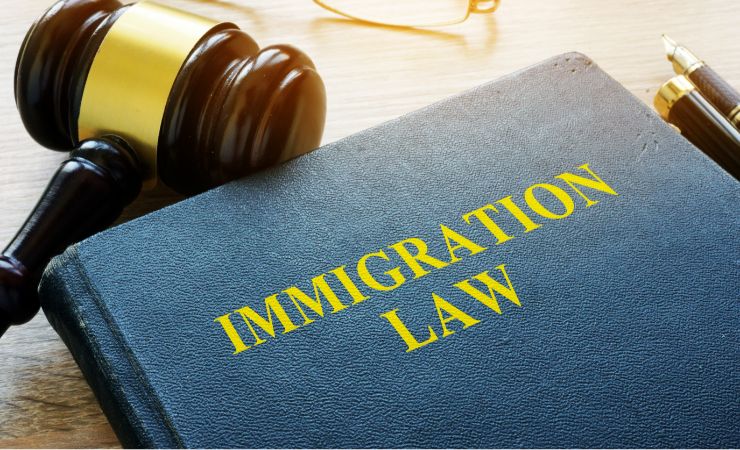Asylum lawyer Miami play a vital role in the intricate process of immigration and seeking refuge in the United States. They are legal professionals specialized in the complex field of asylum law, catering to individuals who are seeking protection in the U.S. due to persecution or well-founded fears of persecution in their home countries based on their race, religion, nationality, membership in a particular social group, or political opinion. These lawyers guide applicants through the legal labyrinth, ensuring that their claims are presented effectively and that their rights are upheld throughout the asylum process.
The city of Miami, with its diverse population and status as a hub for immigrants, has a significant number of legal practitioners experienced in asylum cases. They are adept at navigating the legal system and are knowledgeable about the ever-evolving immigration policies that could affect the outcome of an asylum application. These specialists understand the importance of timely and accurate applications, given the profound impact the process has on the lives of asylum seekers.
Asylum attorneys in Miami offer a range of services, from initial consultation to representation in immigration courts. Their expertise not only includes preparation of the asylum application but also entails gathering supporting documentation, and providing representation in interviews with immigration officers. They engage with clients from all over the world and are familiar with the nuances of different cases, which is paramount in a system where each case can considerably differ based on the individual circumstances and origins of the asylum seeker.
Understanding Asylum Law in Miami
In Miami, asylum law provides legal protection for individuals fearing persecution based on certain grounds. The correct interpretation and application of legal criteria are essential for those seeking refuge in the United States.
Asylum Eligibility and Legal Criteria
An individual may be eligible for asylum in the United States if they possess a well-founded fear of persecution in their home country due to their race, religion, nationality, political opinion, or membership in a particular social group. The Immigration and Nationality Act sets out these eligibility criteria. Persecution is defined as serious harm or suffering inflicted either by the government of one’s home country or by non-governmental entities that the government cannot or will not control.
To qualify for asylum, an applicant must demonstrate that:
- There is a genuine risk of persecution.
- The persecution is connected to one of the five protected grounds.
- Relocation within the home country would not avoid this fear.
- They are not barred from asylum for reasons such as committing serious crimes or posing a safety threat to the US.
The Asylum Application Process
Applicants seeking asylum in Miami must follow a structured process which begins with the submission of Form I-589, Application for Asylum and for Withholding of Removal, within one year of arrival in the United States. The necessary steps of the process include:
- Filing the Application: Complete and submit Form I-589 to the USCIS.
- Fingerprinting and Background Checks: After applying, the individual must provide their fingerprints for a background check.
The process continues with an asylum interview conducted by a trained asylum officer. This evaluation is critical for determining an applicant’s eligibility based on the information provided in their application and during the interview.
- Asylum Interview: A scheduled interview with an asylum officer who will evaluate the credibility of the claim.
- Decision: The asylum officer will either grant asylum, refer the case to immigration court for further review, or deny the claim.
Throughout the process, individuals may be represented by an asylum lawyer in Miami, which can offer expert guidance and potentially increase the chances of a successful application. The decisions made by the officers and courts are to ensure protection under the US law for those facing genuine fear of persecution.
Working with a Miami Asylum Lawyer
In Miami, Florida, individuals seeking asylum must navigate complex legal channels. Working with a knowledgeable Miami asylum attorney can be pivotal in determining the success of an asylum claim. Whether through affirmative or defensive processes or immigration court, an attorney plays a crucial role.
Choosing an Immigration Attorney
Selecting the right immigration attorney in Miami requires careful consideration. Trust is fundamental; it’s essential to work with a law office that showcases a strong track record and specializes in asylum cases. Consider these factors:
- Experience: An attorney experienced with asylum laws can effectively manage your case.
- Reputation: Look for testimonials about the attorney’s ability to handle complex asylum cases.
Affirmative vs. Defensive Asylum Representation
Understanding the difference between affirmative and defensive asylum is critical for applicants:
- Affirmative Asylum: Filed when you are not in removal proceedings and possess a credible fear of persecution in your home country.
- Defensive Asylum: Sought as a defense against deportation in immigration court proceedings.
When facing a serious risk of harm in your country of origin, an experienced immigration attorney can determine the appropriate type for your situation.
Immigration Court Representation
Representation in immigration court can heavily influence the outcome of an asylum claim. Key aspects include:
- Knowledge of Court Procedures: Attorneys familiar with the workings of the immigration court in Miami can navigate the system more effectively.
- Withholding of Removal and Other Protections: In cases where asylum is not granted, an immigration attorney may seek alternative forms of relief, such as withholding of removal, as defined by Congress. This status is generally more difficult to obtain but offers some protection to those who are at risk.





